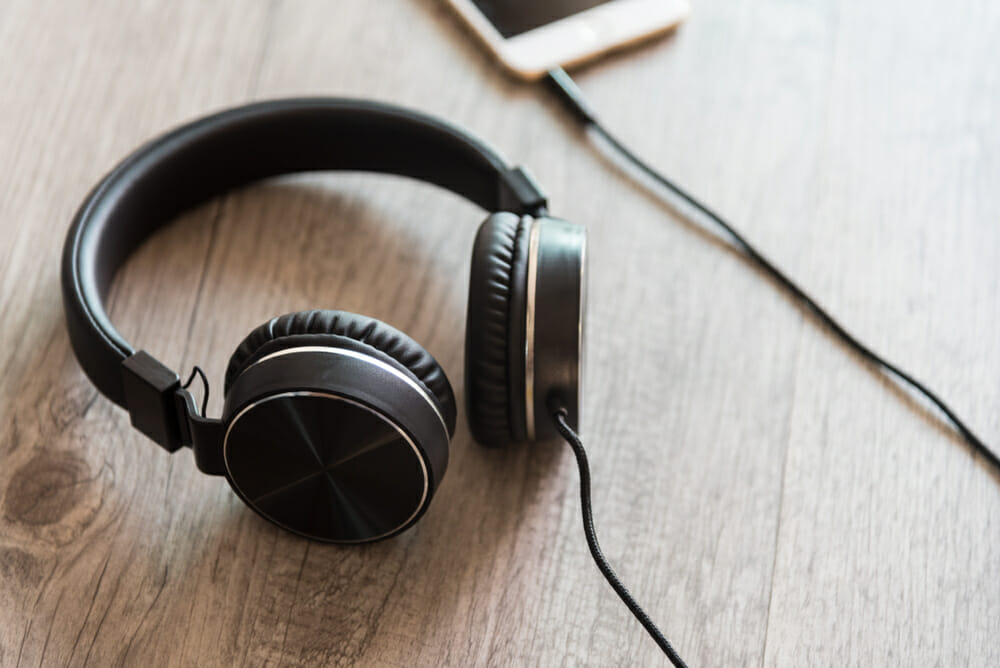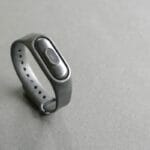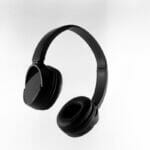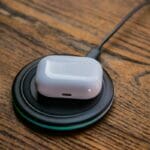The developments that personal music devices have undergone in recent decades are pretty staggering. First the cassette tape came along, then it was replaced by the CD, which was replaced by the iPod, which was replaced by smartphones.
The developments don’t just stop there, though. The various types of headphones we use to listen to music have also undergone massive changes to make it easier to listen to music anywhere in the world.
Gone are the days of untangling a mess of wires and forcing a clunky plastic box onto both of your ears to make a long train journey less boring.

Instead, a lot of people are opting for wireless earpods which undoubtedly represent the most convenient way to listen to music on the go.
However, as with any electronic product, there are plenty of potential faults and misuses that can cause your headphones to stop working as well as they used to.
Before you go out and buy a new pair of headphones, you might want to consider how long they might last and what you can do to improve that lifespan.
There are so many factors that can determine how long a pair of headphones will last and it could be anywhere from a few months to several years.
Different Types Of Headphones
Before we get into the details of how headphones get damaged, we should understand what the different types of headphones are.
- Closed back – These headphones are the best variety for providing fully immersive audio quality while eliminating most of the background noise. They go all the way around the ear and enclose it to make sure all the sound goes through and doesn’t leak out the sides. This is the headphone of choice for many professional audio technicians and producers.
- Open back – These are slightly less immersive and purposely allow some music to escape out the sides of the headphone cup to create a more open sound as if it were being played through speakers. This is another favorite of the music producer who might want to avoid build ups of certain frequencies.
- On ear – One ear headphones tend to be lighter than the previous two, making them somewhat easier to wear for longer periods of time. However, they can also be a little less comfortable because the pressure is not dispersed as evenly over the whole ear.
- In ear – This term refers to any kind of headphone that is inserted partially into the ear. This is easily the most popular variety of headphones in recent years and has spawned a whole new category of its own.
- Bluetooth earbuds – Apple popularized this type of headphone with their Airpods. These are basically wireless, in-ear headphones that you can connect to a music playing device via Bluetooth (see also ‘Why Are My Bluetooth Headphones So Quiet?‘).
Most Common Causes Of Headphone Failure
There are quite a few reasons why a pair of headphones might stop working that you’ve probably never considered. In this section, we’ll go over the causes of headphone damage and in the next section we’ll explain how to avoid them.
Let’s take a look at some of the most common ways they can be damaged.
- Lack of cleaning – Headphones are the same as pretty much any electronic device in that they need to be cleaned somewhat regularly to maintain their working capacity. Don’t worry if you don’t do this though, most people don’t even realize they need to clean their headphones.
- Poor storage – Surprisingly, there are plenty of ways you can store your headphones improperly that can cause damage and eventually lead to their demise. This isn’t as common a cause as some of the others on this list but it’s definitely something that’s worth considering.
- Playing loud music – Now, this one might seem like a joke, but playing music through your headphones can genuinely cause them to stop working. Sound waves are transmitted through vibrations, that’s why with any speaker or pair of headphones you’ll be able to feel small vibrations with bass. The louder the music is, the greater the vibrations are- which can cause the mechanical systems inside the headphones to be rattled loose and fail altogether.
- Poor manufacturing – Sometimes, it doesn’t matter how well you treat an electronic product. If you buy one too cheap and the manufacturer does a shoddy job, it’ll stop working after a while anyway. That’s why more expensive headphones will almost always last longer than cheap ones. You really do get what you pay for.
How To Make Your Headphones Last Longer
Now that we’ve established why headphones tend to break, let’s have a look at the things you can do to avoid these issues and improve the lifespan of your device.
Cleaning
Full, over the ear headphones will attract the most dirt and grime on the cushions that go around your ears. This is the part that comes into contact with your skin the most and is therefore the part that can have sweat and dirt transferred to it easily.
Simply wiping them with a paper towel or wet wipe every now and then can make a huge difference.
With things like earbuds and earpods, the main issue with cleanliness is that earwax can get left behind when you take them out. As gross as that sounds, it’s perfectly normal and it happens to pretty much everyone without them even realizing.
You can do a quick sweep of each earbud/earpod with a toothbrush to get rid of some of the gunk near the surface but some may still have gotten deeper into the grill.
Using a cotton swab and a small amount of alcohol can help to remove some of the deeper earwax in a safe way, without risk of flooding the internal electronics with liquid.
Then, you can use some kind of putty to press into the earbud/earpod and pull out some of the remaining earwax manually.
Storage
We’ve talked already about how improper storage can cause damage to headphones but what is the correct way to store them?
Well, if your headphones have wires, this can be the main source of most storage issues. Winding the wire up too tightly can stretch it and cause damage to it. Similarly, letting the wire dangle loosely can have a damaging effect.
The best way to store wired headphones is to wrap the wire loosely around the headphones or in a coil and hold it in place with some kind of clip.
Of course, not every pair of headphones will be sold with an appropriate clip, but this is the best storage method you could hope for.
With regards to the rest of the headphones, a lot of damage can be done to the cushion by the elements. Even open air and sunlight can cause the fabric on the outside of the cushions to start peeling and cracking.
That’s why using a case to store your headphones in can improve their longevity.
Don’t Play Loud Music
This is a pretty obvious solution to the damage that can be caused by playing music too loudly.
Of course, you can obviously play your music loud from time to time but persistent, excessively loud music over a long period of time is what can cause serious damage to your headphones and should be avoided.
Replace parts
This is a lot harder to do with things like earbuds, particularly Apple’s Airpods. Apply has a reputation for making its products difficult to repair at home.
However, full headphones that go over the ear are often much easier to take apart and replace certain components.
You should always do your research thoroughly and make 100% sure you know which part needs to be taken out before you do.
If you don’t feel confident enough in your own abilities, you can always go to an electronics store and find out if they can repair the headphones and replace damaged parts for you.
Do Wireless Headphones Last Longer Than Wired Ones?
As we mentioned earlier, damage to your headphone’s wires is one of the most common ways they can stop working. For this reason, wireless headphones are way better, simply because they don’t have such a vulnerable component that can fail.
However, because wireless headphones rely primarily on bluetooth connections (see also ‘How To Connect Bose Wireless Headphones‘), other software issues can be more prominent that won’t exist for wireless headphones. Overall though, wireless headphones will likely last longer on average.
How Do You Know If A Pair Of Headphones Are Good?
It might seem obvious but the best indicator of the quality of a pair of headphones is the price tag. With some electronics, a higher price doesn’t necessarily mean better quality. However, with headphones, you definitely do get what you pay for.
The reason a manufacturer would charge a higher price for a pair of headphones is often because higher quality materials have been used to construct it.
This is often not only the case for the internal components that determine sound quality but also the casing around these electronic parts that affect durability.
What Is The Lifespan Of Wireless Headphones?
The lifespan for wireless headphones can be a little longer on average than wired ones. For example, cheap wired headphones will often stop working due to poor construction or issues with the wire itself.
Wireless headphones (see also ‘Why Do My Wireless Headphones Keep Cutting Out?‘) eliminate this problem by removing the wire, so there are fewer hardware components that can fail.
Therefore, a cheap pair of wireless headphones could last as long as 2 years if used properly and an expensive pair could work for around 8 years!
Final Thoughts
In general, there are multiple factors that will determine the lifespan of a pair of headphones, from manufacturer responsibility to user error. Using the tips in this article, you should be able to make any pair of headphones you buy last as long as possible.
Make sure you bear in mind that more expensive headphones are almost always a higher quality and will last longer than cheaper ones.
To get the best quality possible, try to find a pair as expensive as your budget will allow and you’ll be able to enjoy listening to your tunes with great audio quality for years.
- How to Clean a Leather Watch Band: Quick & Easy Tips for a Fresh Look! - July 7, 2025
- How to Connect Bose Speaker to iPhone: Exciting and Easy Steps! - July 6, 2025
- Best Cheap Bluetooth Headphones - July 6, 2025






